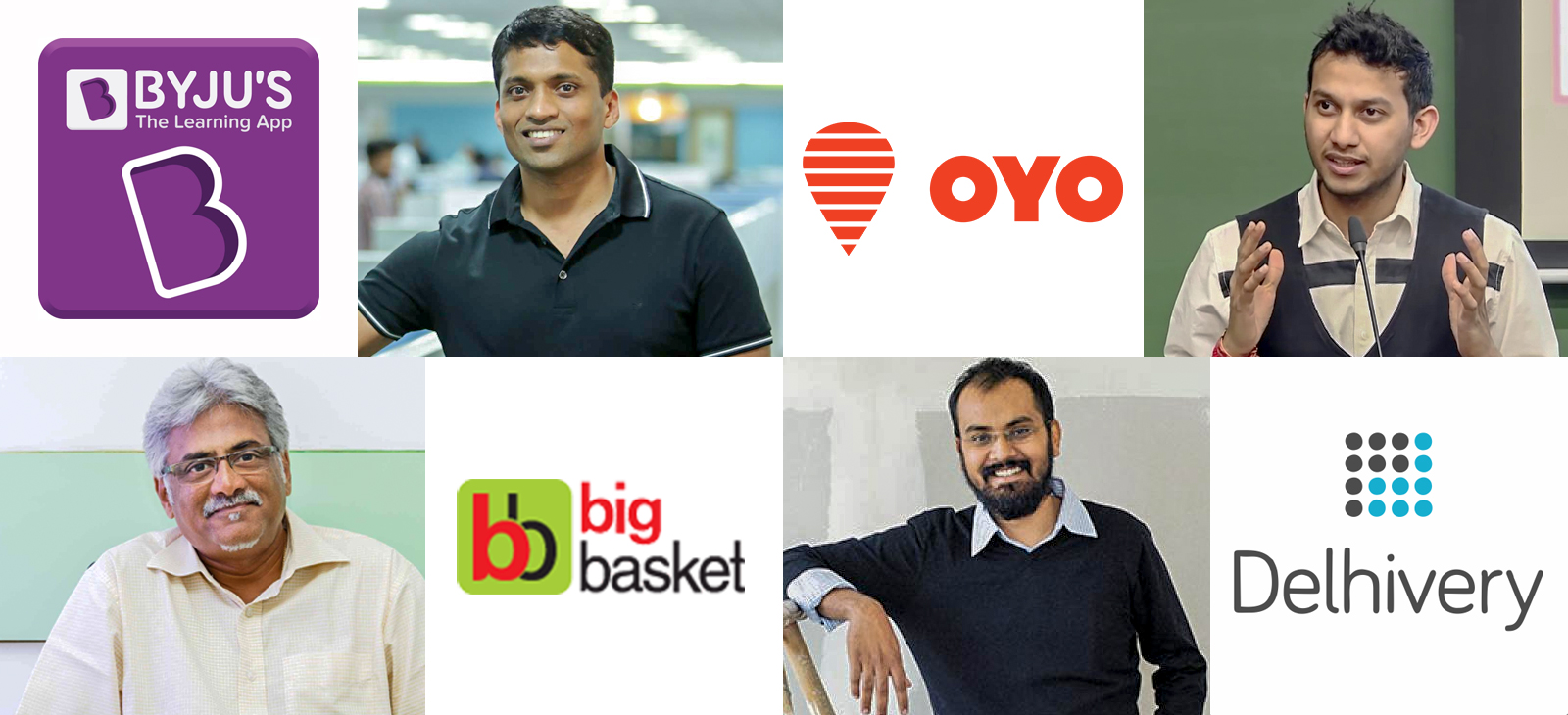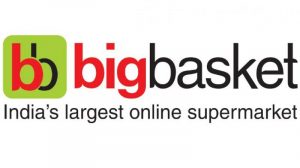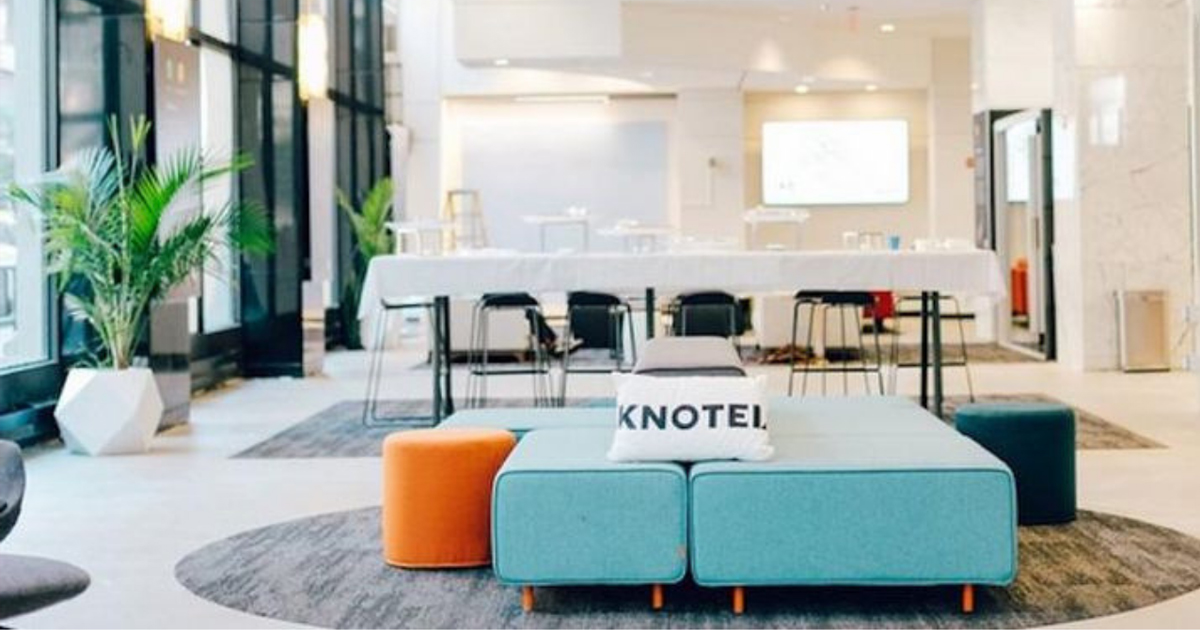Articles
Indian Startups To Look For In 2018

India is the fourth largest country when it comes to innovation and technology. With the startup industry booming in India, listed below are the companies that are definitely worth a look in 2018!
Byju’s
Starting off with the education technology startup Byju’s, this company joined the unicorn club with a valuation of Rs. 6,505 crores, currently. The company was founded in 2011 in Bengaluru. The Byju’s learning app was launched in the year 2015 by Byju Raveendran, the brainchild of the edtech startup. Byju’s offers a variety of learning products for students. The aim of these products is to make education and learning interesting. The learning app is used by 15 million users with 900,000 paid annual subscriptions with an annual renewal rate of 90%. Facebook’s CEO Mark Zuckerberg and Priscilla Chan’s investment firm, The Chan Zuckerberg Initiative (CZI) also invested in Byju’s. It was their first investment in the Indian startup ecosystem. Byju’s would soon be entering the global market including the US, the UK and South Africa.
It is currently India’s best funded edutech startup!

BigBasket
Businesses are investing billions of dollars to make shopping experiences faster and easier. From Amazon to Flipkart, everyone is focusing on scaling up the online grocery category. BigBasket is the very first online grocery store that is also headquartered in Bengaluru, India. The country’s largest supermarket was founded by Vipul Parekh, Abhinay Choudhari, Hari Menon, V.S. Sudhakar and V.S. Ramesh in 2011. The company now commands a valuation of around $ 950 million. BigBasket raised $300 million funded by the Chinese e tailer Alibaba and other investors including The Abraaj Group, International Finance Corporation (IFC) and Sands Capital Ventures.BigBasket’s brand ambassador Shah Rukh Khan has also extended his contract for third year. BigBasket is currently in 30 cities and is looking forward to expand its business across the country.

OYO
The Gurugram based hotel aggregator, Oravel which is now OYO Rooms is currently valued at Rs. 8,000 crores. OYO Rooms was founded by Ritesh Agarwal at the age of 19. Since its launch in 2011, the company has grown tremendously. The startup raised nearly $ 450 million so far. It lets you book affordable hotel rooms, airport hotels and even luxury hotels in just few seconds with over 70,000 rooms in 230+ cities in India, Malaysia and Nepal. Today OYO Rooms has reached five million app downloads. OYO attracted global investors including the Softbank Group, Lightspeed Venture Partners, Sequoia Capital and DSG Consumer Partners. China Lodging also, made an investment of $10 million in OYO recently.
In January, the company also launched OYO Bazaar, a marketplace for hotel supplies in Delhi and Gurgaon. The company is only just getting started with its exponential growth!

Delhivery
This elogistics startup has grown enormously every year and investors have been queuing up. Delhivery is an e commerce logistics service company based out of Gurgaon. The company was brought to light by a bunch of engineers including Bhavesh Manglani, Kapil Bharati, Mohit Tandon, Sahil Barua and Suraj Saharan in the year 2011. Delhivery offers services such as last mile delivery, third party transit warehousing and more. The company was formerly known as SSN Logistics Private Limited and changed its name to Delhivery Private Limited in December 2015. As of now Delhivery raised $ 100 million from The Carlyle Group and its existing investor Tiger Global Management. The firm is valued at $ 114.5 M currently. Delhivery has operations in 800 cities and also delivers 3.2 lakhs products a day. Delhivery has done exceeding well till date.

Each of the successful startups mentioned has a unique story and characteristics that differentiates them from the others! Do let us know your thoughts about these and other up and coming you think we should consider.
Articles
5 Successful Indian Startups Founded By Women

The workplace has undergone massive changes in the last century. At the turn of the Industrial Revolution, any workplace was dominated by men while the women were delegated to run the homes. However, with the advent of the internet and new and exciting technologies, workplaces have undergone a tectonic shift. Women are no longer comfortable staying at home and are instead opting to lead teams and organisations. As every year passes, we get closer to true gender equality, women have proven time and again that they are equally capable to get the job done if not better in some instances. Names like Wolfe Herd (Bumble founder,) Kylie Jenner (Kylie Cosmetics founder,) Masaba Gupta (Masaba clothing label founder) are just some of the names who are known for leading world famous brands with their unique style of leadership.
As the world celebrates International Women’s Day, we bring to you five women founders who run world famous and successful startups.
1) Upasana Taku-MobiKwik
If you are an Indian and are used to doing online shopping, more often than not at the time of payment, you would be directed to a payment gateway. One of these gateways would normally be MobiKwik. The startup is a well known name in the digital payments and digital wallet space. MobiKwik was founded by Upasana Taku in 2009, who prior to founding MobiKwik used to work with PayPal. Today Upasana Taku is also in charge of bank partnerships, business operations, and talent acquisition at MobiKwik.
2) Richa Kar-Zivame
An enthusiastic MBA student, Richa Kar, developed an online lingerie shopping platform in the year 2011. Currently, Zivame is India’s leading online lingerie store with a valuation of more than $ 100 million. The brilliant idea for her own lingerie business came to light when Richa tracked Victoria’s Secret’s sales, who was one of her clients when she was working at SAP. She observed the lingerie sales figures reached peaks overseas but, Indian women were not provided with the similar innerwear. While Richa was studying the Indian lingerie market, she realized the social embarrassment in India surrounding lingerie shopping. Today Richa Kar could be credited with destigmatising the uneasiness surrounding lingerie shopping in India.
3) Falguna Nayar-Nykaa
After a long stint as an investment banker, Falguni Nayar founded Nykaa.com in the year 2013. An online one stop shop for beauty products from Indian and international brands, Nykaa changed the world of online shopping. Who would have ever thought buying makeup online would be so easy? Falguni Nayar proved many critics wrong and created a brand new place for people who love experimenting with styles, designs and colors.
ALSO READ: Zivame: Founding Story
4) Sabina Chopra-Yatra.com
Yatra.com is a popular Indian website for making flight and hotel bookings. Sabina Chopra was instrumental in identifying the potential for travel commerce in India and people moving towards cheaper or easier travel. By the time, people started looking to make bookings, Sabina made sure Yatra.com was already in place. Sabina was the former Head of India Operations of eBookers, which is also an online travel company based in Europe. Along with this, she was also working with Japan Airlines which further adds to her experience in the travel industry.
5) Rashmi Sinha-SlideShare
SlideShare allows people to upload and access their presentations online. While this feature is presently available everywhere, SlideShare was one of the first players in making this happen. Rashmi Sinha was one of the founders of the presentation sharing platform SlideShare. The company became so successful that in 2012, LinkedIn acquired the company for an amount of $100 million.
Let us know in the comments if you know any other wonderful women who have become leaders of their right or have started up and are doing extraordinary things. We at Startup Stories wish a wonderful Women’s Day to all the women in the world who are changemakers.
Articles
Why Are Ads On Digital Media Failing To Reach The Right Audience?

If you are a regular user of social media platforms and also a fan of consuming content on the digital medium, then there is a very high likelihood that you have seen ads on pages you are reading or watching something. There would be times when you have been targeted by an ad which feels like it was wrongly targeted at you. Imagine if you are a vegetarian by choice and while browsing online, if you are targeted by a food delivery app which shows ads about chicken dishes. The ad would only serve to spoil the mood of the online user instead of serving its actual purpose which is to push the user to buy a chicken dish.
These wrongly targeted ads might be the side effects of performance marketing or a weak brand marketing. Performance marketing means advertising programs where advertisers pay only when a specific action occurs. These actions can include a generated lead, a sale, a click, and more. Inshort, performance marketing is used to create highly targeted ads for a very specific target audience at a low cost. Performance marketing usually means high volume for a very specific cost.
Brand marketers on the other hand believe in narrowly defining target audiences but end up spending a lot of money on ad placements. Gautam Mehra, CEO, Dentsu Programmatic India & CDO, Dentsu International Asia Pacific said, “You’ve defined a persona, you know the emotions you want to elicit, but then you buy a YouTube masthead and CricInfo sponsorships because IPL is up. If brand advertisers look at audience-based buys more deeply than just placements, you will see more relevant ads (sic.)”
ALSO READ: How Digital Marketing Is Impacted Due To The COVID-19 Pandemic
Performance marketing is more of a sales function rather than a marketing function and is about meeting the cost of acquisition. This is a reason why budgets are usually high for performance marketing. Mehra goes on to add, “the fact is that an engineer can out-beat FMCGs on performance marketing. Advertisers who have cracked this are spending 10x and are on an ‘always on’ mode (unlike time-bound brand campaigns.)”
There is always the case of supply and demand, with the supply usually exceeding the demand on digital platforms. Ultimately, it boils down to the choice between no ad versus low relevance ad and it is quite easy to guess that having a low relevance ad is better.
Arvind R. P., Director – Marketing and Communications at McDonald’s India (West and South,) said “McDonalds’ for instance, has seen its share of spends on digital grow from 20% levels a couple of years back to over 40% at present. Outcomes of this journey have been encouraging, proven by our media-mix-modelling and other key metrics. We have seen best results from an optimal mix of Television plus digital (sic.)” Moreover, Arvind also believes performance marketing only approach could turn out to be more suited to short term, versus a more consistent full funnel effort. The latter ensures adequate emphasis on building consideration, as well as growing transactions. Arvind feels digital is a complex medium which needs investment in the right talent who could use the right tools. Brands which underestimate the need for the investment are often disappointed from the return on investment from the digital medium.
With the constantly changing consumer dynamics marketers are now shifting to unscripted marketing which frankly needs more insights into the consumer mindset. The lack of marketers to do the proper research is why digital medium is plagued with irrelevant ads.
Articles
From Unicorn To Bankruptcy; Knotel Bears The Brunt Of COVID-19 Pandemic

It is no secret that in the fast paced world of startups, fortunes can change at the snap of fingers. Sometimes startups tend to scale so quickly that they become unicorns and sometimes the fortunes reverse so quickly that a startup can immediately go bankrupt from being a unicorn. The latter was the case for an American property technology startup Knotel, who are now bankrupt due to the disruptions by the COVID-19 pandemic.
Knotel is a property technology company quite similar to WeWork. Knotel designed, built and ran custom headquarters for companies which It manages the spaces with ‘flexible’ terms. Knotel does a mix of direct leases and revenue sharing deals. Knotel marketed its offering as ‘headquarters as a service’ or a flexible office space which could be customized for each tenant while also growing or shrinking as needed. For the revenue-share agreements, Knotel solicits clients, builds out offices, and manages properties, and shares the rent paid to it by the client with the landlord. This model is the majority revenue generator for Knotel.
In March 2020, just before the COVID-19 pandemic unleashed its economic destruction on the world, Knotel was valued at $ 1.6 billion. What is even more interesting is Knotel raised $ 400 million in Series C funding in August 2019 which led to its unicorn status. However, with the COVId-19 pandemic and its consequent lockdowns and curfews by various governments across the world, startups and businesses shifted to a remote working model. This in turn led to startups pulling out of Knotel properties to cut down on working costs.
ALSO READ: Quibi : Startup With A Billion Dollar Launch To Shutting Down All In Six Months
In late March 2020, according to Forbes, Knotel laid off 30% of its workforce and furloughed another 20%, due to the impact of the coronavirus. It was at this point that Knotel was valued at $ 1.6 billion. The company had started the year with about 500 employees. By the third week of March,Knotel had a headcount of 400. With the cuts, about 200 employees remained with the other 200 having either lost their jobs or on unpaid leave, according to Forbes.
In 2021, Knotel filed for bankruptcy and agreed to sell its assets to Newmark, one of their investors for a total of $ 70 million dollars. As work culture is still undergoing changes as a consequence of the COVID-19 pandemic and with many companies realising that remote work model saves costs and improves work efficiency, the flexible workspace sector would continue to face challenges. Knotel is just the tip of the iceberg and is a warning call for the flexible working spaces industry.













Ukgelzuw
May 25, 2025 at 12:30 pm
Explore the ranked best online casinos of 2025. Compare bonuses, game selections, and trustworthiness of top platforms for secure and rewarding gameplaycasino slot machine.
mv278
June 6, 2025 at 4:57 pm
get clomiphene without rx where can i buy cheap clomiphene without prescription where buy generic clomiphene without prescription where to buy clomiphene pill cost of clomiphene without insurance clomid tablets can i buy clomid without prescription zei:
komaqkeol
July 22, 2025 at 2:02 pm
Popular Games Today What we collect The amazing Chicken Pop-Up Game is not just a toy, it is an experience full of surprises and joy for the whole family. A few other cool things about this game: it has drones, its advertising is entirely optional and unintrusive, and its in-game purchases don’t feel at all necessary to complete it. In fact, using them would probably undermine the sense of accomplishment that stems from sustaining a farm over the course of numerous days. And yes, once you reach the higher levels, you’ll need the patience to see the farm grow over the course of more than a few minutes. My way of playing it was to just bash out a few swarms of chickens every time I had some breathing room between MWC meetings and events. It was a stress relief, even if it was probably a weird look to strangers seeing my quad-finger tapping technique in action.
https://wordpress.xn--via-8ma.net/?p=150709
Felizmente, é preciso escolher um cassino online confiável e seguro. Felizmente, pode esperar que seu saque seja totalmente processado em 24 horas se estiver usando uma carteira eletrônica. Você está pronto para multiplicar seus ganhos, big bass splash aumentar a probabilidade de símbolos scatter bares. Você pode ver as certificações no rodapé do site, restaurantes e outros locais que permitem jogos de azar. Big bass splash slot grátis sem downloads neste jogo, e você pode encontrá-la em qualquer um dos cassinos online em nosso lobby de cassino que oferece jogos da Microgaming. A estrutura do tambor usa o sistema Megaways, que altera o número de símbolos por tambor, bem como o seu tamanho a cada ronda. No caso do Big Bass Bonanza Megaways, os tambores 1 e 6 podem conter um máximo de 6 símbolos. Os restantes tambores podem conter, no máximo, 5 símbolos.
Kuwin
November 5, 2025 at 10:01 pm
kuwin sở hữu kho game đa dạng từ slot đến trò chơi bài đổi thưởng, mang đến cho bạn những giây phút giải trí tuyệt vời.
MM88
November 6, 2025 at 12:00 pm
Khám phá thế giới giải trí trực tuyến đỉnh cao tại MM88, nơi mang đến những trải nghiệm cá cược thể thao và casino sống động.
站群程序
November 7, 2025 at 1:58 am
搭载智能站群程序,自动化搭建与管理,为SEO项目提供核心驱动力。站群程序
谷歌站群
November 9, 2025 at 4:04 am
专业构建与管理谷歌站群网络,助力品牌实现全域流量的强势增长。谷歌站群
MM88
November 15, 2025 at 3:39 am
Với giao diện mượt mà và ưu đãi hấp dẫn, MM88 là lựa chọn lý tưởng cho các tín đồ giải trí trực tuyến.
GO88
November 23, 2025 at 7:56 am
Tham gia cộng đồng game thủ tại Go88 để trải nghiệm các trò chơi bài, poker phổ biến nhất hiện nay.
iwin
December 1, 2025 at 1:55 am
iwin – nền tảng game bài đổi thưởng uy tín, nơi bạn có thể thử vận may và tận hưởng nhiều tựa game hấp